Ancient Egypt stands as one of the most intriguing civilizations in history, known for its grand pyramids, majestic pharaohs, and advanced societal systems. However, amidst the grandeur and mystique of this ancient civilization, one humble yet essential commodity played a significant role in the daily lives of the Egyptians – soap. Yes, soap, the simple item that most of us take for granted today, held a crucial place in the daily rituals and health practices of the ancient Egyptians. The Egyptians were a civilization deeply rooted in rituals and symbolism; cleanliness was a vital aspect of their culture. Bathing and hygiene were not only a means of physical cleanliness but also held spiritual significance. Soap, or substances akin to soap, played a pivotal role in their hygiene practices. So, what did soap look like in ancient Egypt? The ancient Egyptians did not have the luxury of strolling down the supermarket aisle and picking their preferred brand of soap. Instead, they crafted their own soap-like substances using a blend of natural ingredients. One of the primary ingredients used in ancient Egyptian soapmaking was animal or vegetable oils. These oils were mixed with alkaline substances, often derived from wood ash, which acted as a cleansing agent.
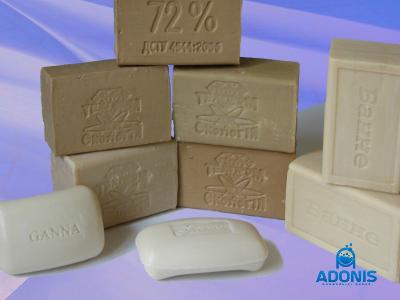
.
 The process of making soap in ancient Egypt was a meticulous and labor-intensive task. First, the oils, such as olive oil or palm oil, were heated over a fire. Once the oils reached a certain temperature, they were mixed with the alkaline solution, usually made from the ash of certain plants. This mixture was stirred continuously until it reached a thick consistency. The resulting substance was then poured into molds and left to cool and solidify. The ancient Egyptians were known for their ingenuity and resourcefulness, and this was evident in their soapmaking techniques. While the soap-like substance they created may not resemble the neatly packaged bars of soap we are familiar with today, it served its purpose effectively. The ingredients used in ancient Egyptian soap were natural and free from harsh chemicals, making it gentle on the skin. Soap was not only used for personal hygiene in ancient Egypt but also had various other uses. It was utilized in religious ceremonies, particularly in purification rituals. The act of cleansing oneself with soap held symbolic significance, representing the purification of the body and soul. Soap was also used in medicinal practices, with certain concoctions believed to have healing properties. In ancient Egypt, soapmaking was not just a practical necessity but an art form in itself. The intricate process of crafting soap from scratch required skill and knowledge, passed down through generations. The ancient Egyptians took pride in their soapmaking abilities, and the soap they produced was considered a valuable commodity. The significance of soap in ancient Egypt extended beyond its practical uses. Soapmaking was a revered craft, with skilled artisans specializing in the creation of these cleansing substances. These artisans were highly regarded in Egyptian society and played a crucial role in maintaining the health and hygiene of the populace.
The process of making soap in ancient Egypt was a meticulous and labor-intensive task. First, the oils, such as olive oil or palm oil, were heated over a fire. Once the oils reached a certain temperature, they were mixed with the alkaline solution, usually made from the ash of certain plants. This mixture was stirred continuously until it reached a thick consistency. The resulting substance was then poured into molds and left to cool and solidify. The ancient Egyptians were known for their ingenuity and resourcefulness, and this was evident in their soapmaking techniques. While the soap-like substance they created may not resemble the neatly packaged bars of soap we are familiar with today, it served its purpose effectively. The ingredients used in ancient Egyptian soap were natural and free from harsh chemicals, making it gentle on the skin. Soap was not only used for personal hygiene in ancient Egypt but also had various other uses. It was utilized in religious ceremonies, particularly in purification rituals. The act of cleansing oneself with soap held symbolic significance, representing the purification of the body and soul. Soap was also used in medicinal practices, with certain concoctions believed to have healing properties. In ancient Egypt, soapmaking was not just a practical necessity but an art form in itself. The intricate process of crafting soap from scratch required skill and knowledge, passed down through generations. The ancient Egyptians took pride in their soapmaking abilities, and the soap they produced was considered a valuable commodity. The significance of soap in ancient Egypt extended beyond its practical uses. Soapmaking was a revered craft, with skilled artisans specializing in the creation of these cleansing substances. These artisans were highly regarded in Egyptian society and played a crucial role in maintaining the health and hygiene of the populace.
..
 The discovery of soap residues in ancient Egyptian tombs is a testament to the importance placed on cleanliness and hygiene in this civilization. The Egyptians believed in the preservation of the body even after death, and this included ensuring that the body was clean and purified. Soap played a vital role in the funerary rituals of ancient Egypt, with the deceased being cleansed with soap-like substances in preparation for the journey to the afterlife. The use of soap in ancient Egypt reveals a deep-seated cultural emphasis on cleanliness and purification. The Egyptians viewed soap not just as a utilitarian product but as a symbol of purity and spiritual cleansing. The meticulous process of soapmaking and the reverence accorded to soap artisans highlight the importance of hygiene in ancient Egyptian society. In conclusion, the role of soap in ancient Egypt was far more than just a tool for personal hygiene. It was a symbol of purity, a craft to be mastered, and a vital component of daily life in this ancient civilization. The ancient Egyptians’ innovative soapmaking techniques and their appreciation for the art of cleanliness serve as a testament to their advanced understanding of hygiene and the significance they placed on ritualistic purification. So, the next time you reach for a bar of soap, remember the ancient Egyptians and their skillful craft of soapmaking, a tradition that has transcended time and continues to influence our modern-day practices of cleanliness and hygiene. The ancient Egyptians’ reverence for cleanliness and the art of soapmaking extended beyond mere practicality; it was deeply ingrained in their societal beliefs and customs. The meticulous process of creating soap-like substances using natural ingredients reflected their connection to the earth and their respect for the natural world. In the bustling markets of ancient Egypt, soapmakers would display their wares alongside other essential commodities. Soap was a sought-after product, valued for its cleansing properties and symbolic significance. Citizens from all walks of life, from the lowliest laborer to the highest-ranking noble, would purchase soap to maintain their personal hygiene and participate in religious rituals. The ritualistic importance of soap in ancient Egypt can be seen in various artistic depictions and archaeological findings. Scenes on temple walls and tomb paintings often depict individuals engaging in bathing rituals, where soap or soap-like substances are being used. These representations provide insight into the everyday practices of the ancient Egyptians and highlight the integral role that soap played in their daily lives.
The discovery of soap residues in ancient Egyptian tombs is a testament to the importance placed on cleanliness and hygiene in this civilization. The Egyptians believed in the preservation of the body even after death, and this included ensuring that the body was clean and purified. Soap played a vital role in the funerary rituals of ancient Egypt, with the deceased being cleansed with soap-like substances in preparation for the journey to the afterlife. The use of soap in ancient Egypt reveals a deep-seated cultural emphasis on cleanliness and purification. The Egyptians viewed soap not just as a utilitarian product but as a symbol of purity and spiritual cleansing. The meticulous process of soapmaking and the reverence accorded to soap artisans highlight the importance of hygiene in ancient Egyptian society. In conclusion, the role of soap in ancient Egypt was far more than just a tool for personal hygiene. It was a symbol of purity, a craft to be mastered, and a vital component of daily life in this ancient civilization. The ancient Egyptians’ innovative soapmaking techniques and their appreciation for the art of cleanliness serve as a testament to their advanced understanding of hygiene and the significance they placed on ritualistic purification. So, the next time you reach for a bar of soap, remember the ancient Egyptians and their skillful craft of soapmaking, a tradition that has transcended time and continues to influence our modern-day practices of cleanliness and hygiene. The ancient Egyptians’ reverence for cleanliness and the art of soapmaking extended beyond mere practicality; it was deeply ingrained in their societal beliefs and customs. The meticulous process of creating soap-like substances using natural ingredients reflected their connection to the earth and their respect for the natural world. In the bustling markets of ancient Egypt, soapmakers would display their wares alongside other essential commodities. Soap was a sought-after product, valued for its cleansing properties and symbolic significance. Citizens from all walks of life, from the lowliest laborer to the highest-ranking noble, would purchase soap to maintain their personal hygiene and participate in religious rituals. The ritualistic importance of soap in ancient Egypt can be seen in various artistic depictions and archaeological findings. Scenes on temple walls and tomb paintings often depict individuals engaging in bathing rituals, where soap or soap-like substances are being used. These representations provide insight into the everyday practices of the ancient Egyptians and highlight the integral role that soap played in their daily lives.
…
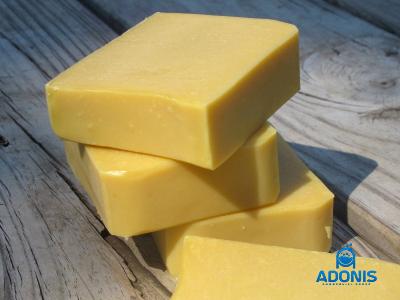 The use of soap in ancient Egypt was not limited to personal hygiene; it also found applications in medicine and beauty care. Certain soap-like substances were believed to possess medicinal properties and were used to treat skin ailments and promote overall well-being. Additionally, fragrant oils and herbs were added to soap mixtures to create scented soaps for bathing, a practice that was considered indulgent and luxurious. Soapmaking was a skill passed down from generation to generation in ancient Egypt. Families or guilds specializing in soap production would guard their secret recipes and techniques closely, ensuring that their soaps stood out in quality and efficacy. The process of soapmaking was a point of pride for these artisans, and the soaps they produced were highly coveted in Egyptian society. The influence of soap in ancient Egypt extended beyond the borders of the Nile, reaching neighboring civilizations through trade and cultural exchanges. The Egyptians’ mastery of soapmaking techniques and the quality of their soap products made them sought after in the ancient world. Traders would journey far and wide to acquire Egyptian soap, recognizing its superior quality and the skill of its makers. The legacy of soap in ancient Egypt endures to this day, with modern soapmaking techniques drawing inspiration from the traditions of the past. The natural ingredients and meticulous processes employed by the ancient Egyptians have left a lasting impact on the art of soapmaking, influencing contemporary practices and products. In conclusion, the role of soap in ancient Egypt was far more than just a means of maintaining personal hygiene. It was a symbol of purity, a cornerstone of ritualistic practices, and a testament to the advanced knowledge and skills of this ancient civilization. The meticulous craft of soapmaking, the reverence for cleanliness, and the spiritual significance attached to soap all speak to the rich tapestry of Egyptian culture and society. So, the next time you lather up with a bar of soap, take a moment to reflect on the ancient Egyptians and their profound understanding of the importance of cleanliness and purification.
The use of soap in ancient Egypt was not limited to personal hygiene; it also found applications in medicine and beauty care. Certain soap-like substances were believed to possess medicinal properties and were used to treat skin ailments and promote overall well-being. Additionally, fragrant oils and herbs were added to soap mixtures to create scented soaps for bathing, a practice that was considered indulgent and luxurious. Soapmaking was a skill passed down from generation to generation in ancient Egypt. Families or guilds specializing in soap production would guard their secret recipes and techniques closely, ensuring that their soaps stood out in quality and efficacy. The process of soapmaking was a point of pride for these artisans, and the soaps they produced were highly coveted in Egyptian society. The influence of soap in ancient Egypt extended beyond the borders of the Nile, reaching neighboring civilizations through trade and cultural exchanges. The Egyptians’ mastery of soapmaking techniques and the quality of their soap products made them sought after in the ancient world. Traders would journey far and wide to acquire Egyptian soap, recognizing its superior quality and the skill of its makers. The legacy of soap in ancient Egypt endures to this day, with modern soapmaking techniques drawing inspiration from the traditions of the past. The natural ingredients and meticulous processes employed by the ancient Egyptians have left a lasting impact on the art of soapmaking, influencing contemporary practices and products. In conclusion, the role of soap in ancient Egypt was far more than just a means of maintaining personal hygiene. It was a symbol of purity, a cornerstone of ritualistic practices, and a testament to the advanced knowledge and skills of this ancient civilization. The meticulous craft of soapmaking, the reverence for cleanliness, and the spiritual significance attached to soap all speak to the rich tapestry of Egyptian culture and society. So, the next time you lather up with a bar of soap, take a moment to reflect on the ancient Egyptians and their profound understanding of the importance of cleanliness and purification.


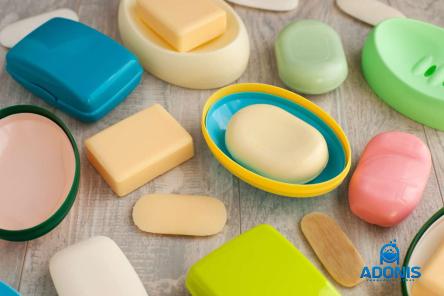
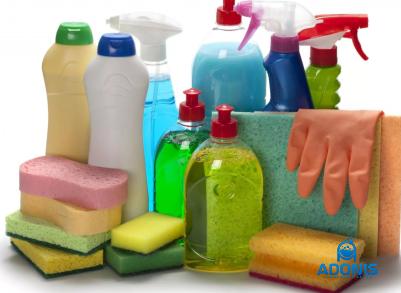

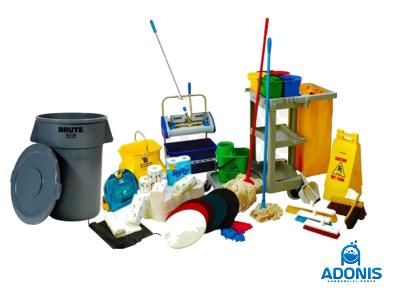

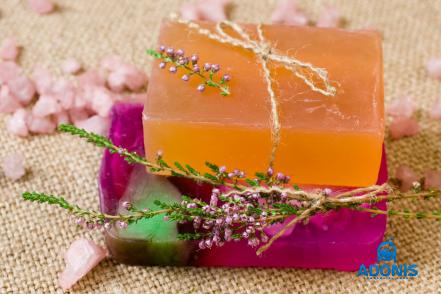
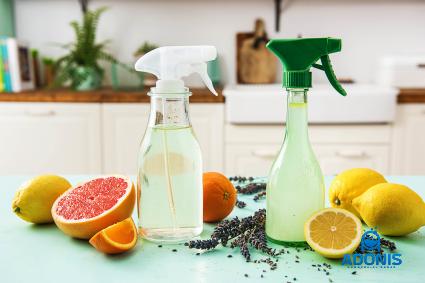
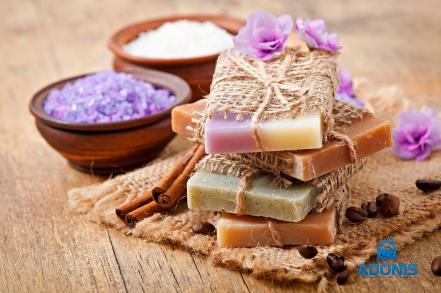
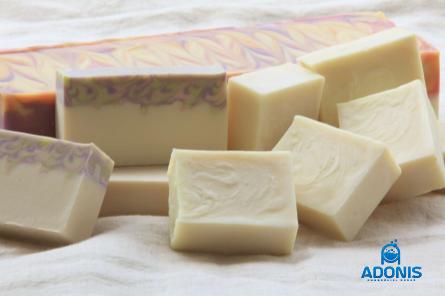
Your comment submitted.